Dentistry
We prioritise assessing your pet’s dental health during routine consultations and offer staged dentals for safe, thorough treatment.
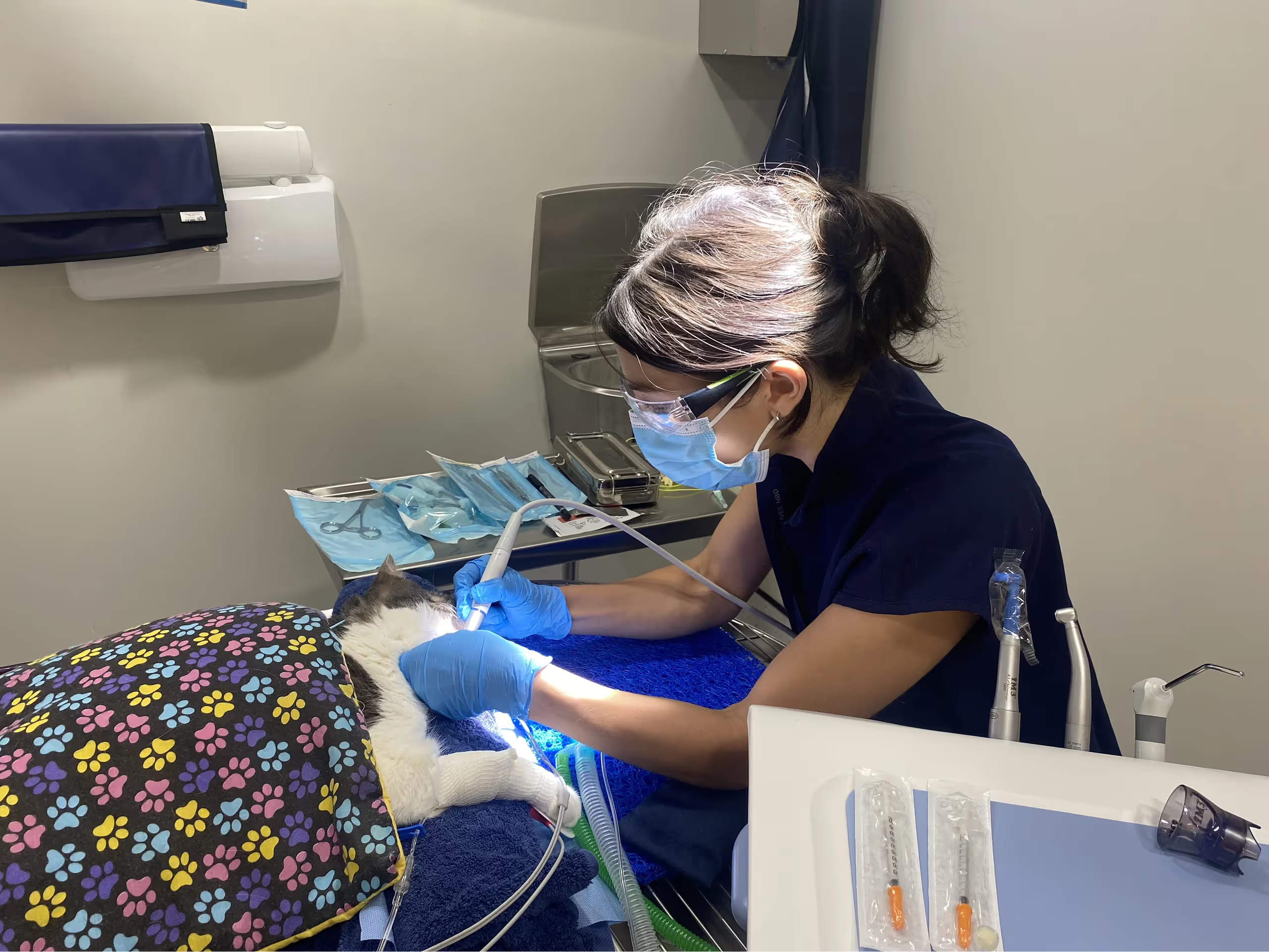
We prioritise assessing your pet’s dental health during routine consultations and offer staged dentals for safe, thorough treatment.



Dental health is a crucial aspect of your pet's overall wellbeing. If left untreated, dental issues can lead to significant discomfort, which may result in inappetence, weight loss, and other health complications.
The best way to maintain your pet's dental health is by preventing tartar buildup. Regular tooth brushing with pet-specific products and feeding food that promotes chewing are key. Keep an eye out for signs like bad breath or difficulty eating to catch dental issues early.
Hello Vet is the first clinic in the UK designed to keep you and your pet together during procedures. We believed you are the best comfort for your pet. You can stay by their side during anaesthesia and intubation, and be with them as soon as they start to wake up.
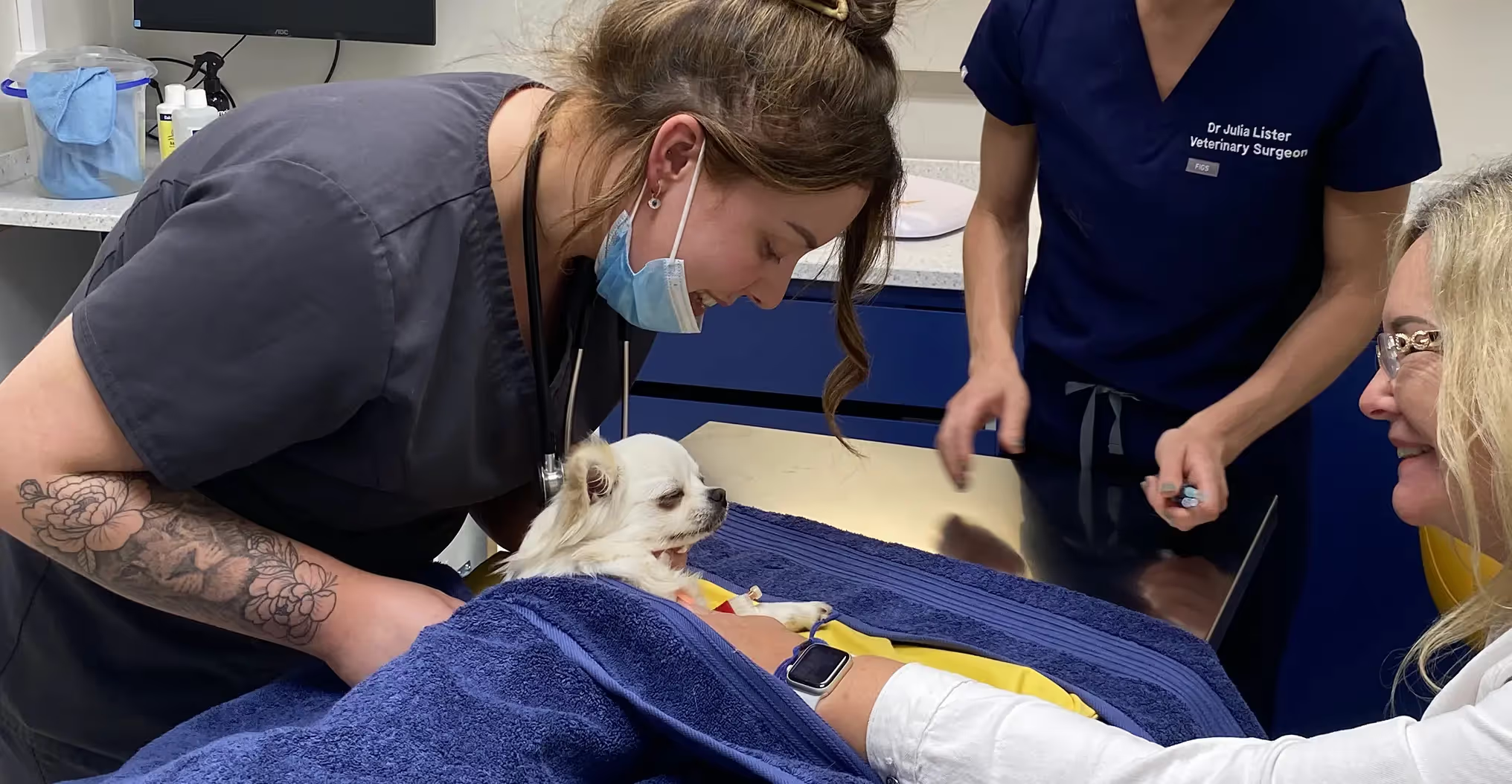
This first stage includes a full scale and polish, along with detailed dental x-rays taken under general anaesthetic. These allow us to thoroughly assess the health of your pet's teeth and roots, and to determine whether any extractions may be needed. If no extractions (or very few) are required, we may be able to complete all necessary treatment in one procedure.
If we find teeth that need to be removed, we may recommend a Stage 2 procedure. Stage 2 is usually booked for around a month after Stage 1. Evidence shows that, following a thorough clean, diseased teeth often improve over time, reducing the number and cost of extractions.
We carry out any extractions under general anaesthetic, with a clear plan in place thanks to Stage 1. This approach means less risk, better planning, and healthier mouths.
You can find the price ranges for Stage 1 and 2 dental procedures on our pricing page. We can provide a more accurate cost estimate after examining your pet. In some cases, dental X-rays are needed to determine how many teeth may need to be extracted. The final cost depends on several factors, including the number of X-rays and extractions, as well as whether preoperative blood tests or IV fluids are required.
These are effective and can be a supplement to teeth brushing - but not a replacement. There is a huge variety available. Take care regarding calorie content, and be sure the product you choose is not too hard on the teeth, as this can damage enamel. We find that Hills T/D diet is the most effective biscuit to feed to prevent dental disease.
Plaque takes 48 hours to form. We recommend brushing daily. At a minimum, brush every other day. Start by simply letting your pet lick the meat or fish flavoured toothpaste off your finger like a treat, then once they are used to this you can gently rub the gums with your paste covered finger. This can take a week or two to establish trust and awareness. Once everyone is happy you can introduce the brush.
Choose your moment. It is easiest to brush your pet’s teeth when you are both calm. If your pet pulls away or is uncomfortable at any point in a brushing session, stop what you are doing and take a break. During the next session, go back a step to when your pet was comfortable. Practice that step slowly before progressing gradually.
During your pet’s routine check-up or annual vaccinations, we’ll examine their teeth and let you know if there are any dental issues. If you have concerns before then, you can always book a consultation to discuss them with our clinical team.
For our elderly patients, we take extra precautions to ensure their safety during procedures. We recommend a preoperative blood test to check kidney, liver, and other vital parameters. If the results raise concerns, we may adjust the anaesthetic or reconsider the procedure. We also perform a thorough heart and lung auscultation to check for any signs of cardiac disease. If there are any concerns then we might recommend treatment or further investigation prior to starting the dental.
Signs of dental disease include bad breath, plaque build up, red, swollen or bleeding gums, and visibly fractured, loose or missing teeth. This can manifest as difficulty eating, drinking or swallowing, dribbling, reluctance to be stroked around the head, pawing at the face and changes in behaviour. However, because of their survival instincts, it's not uncommon for our pets to display none of these signs, regardless of what's occurring inside the mouth.
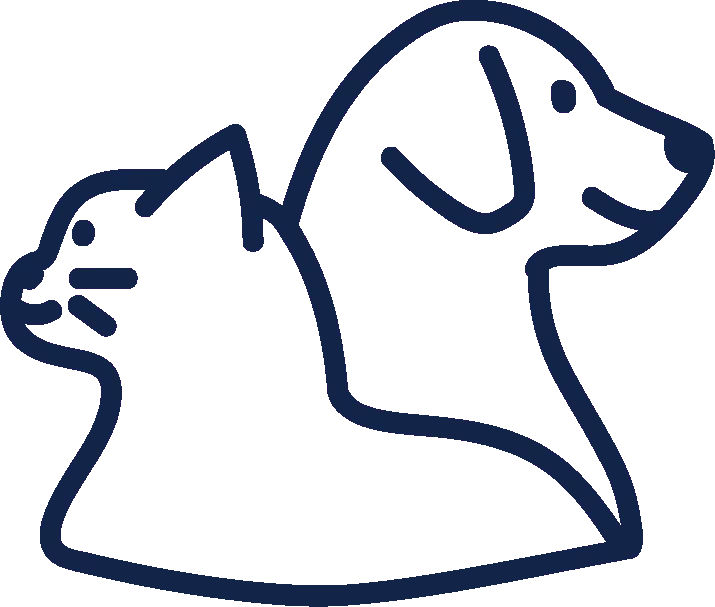
We've redesigned vet care, from your pet's perspective. Calming care in clinics purpose-built for anxious pets.

Instant WhatsApp advice and same-day appointments. We team up with you at every step because you know your pet best.

“We built Hello Vet on the belief that fully cared-for clinicians provide better care for every pet.”
Dr. Christian LeVan, Clinical Director
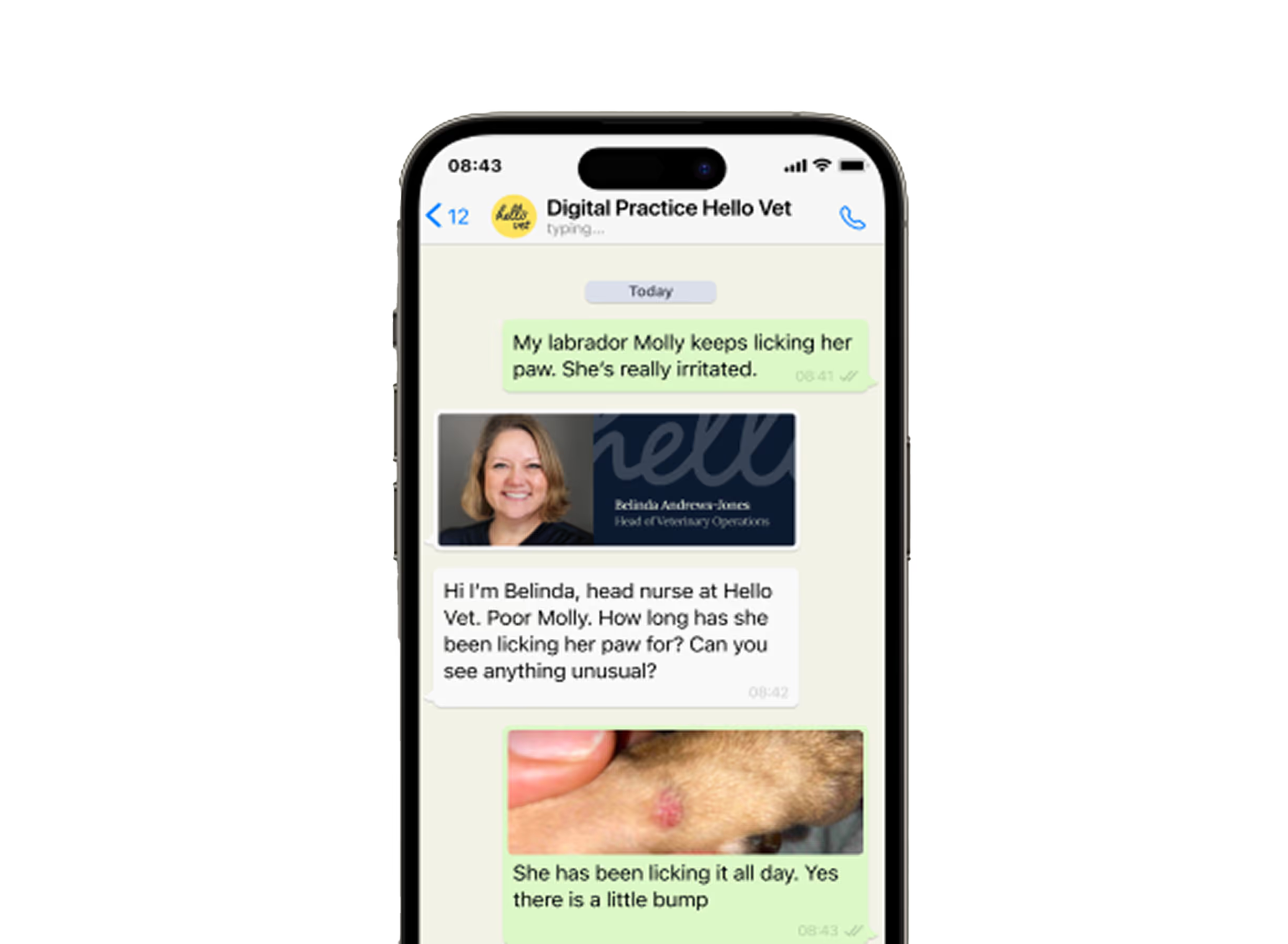
Free advice over WhatsApp, provided by our clinical team. We've saved our clients thousands in fees.
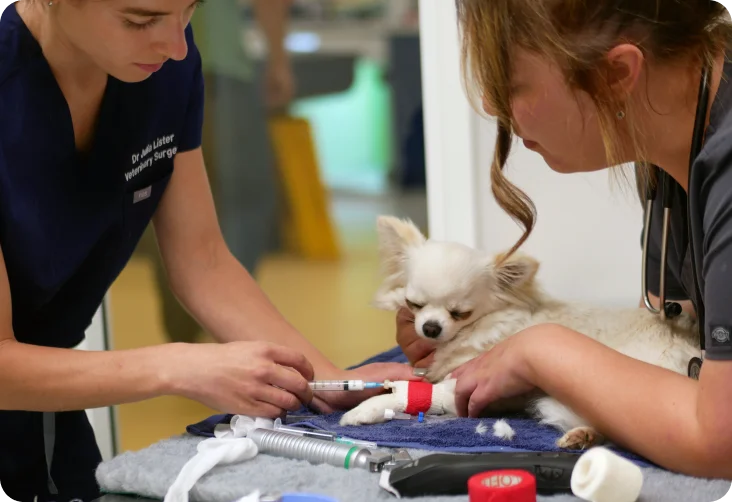
We’re the UK’s first vet to let you stay with your pet during procedures, when they need you most.

Our clinics are designed by vets to keep anxious pets calm. Sunken scales, separate waiting areas, treats. Open 7 days a week.
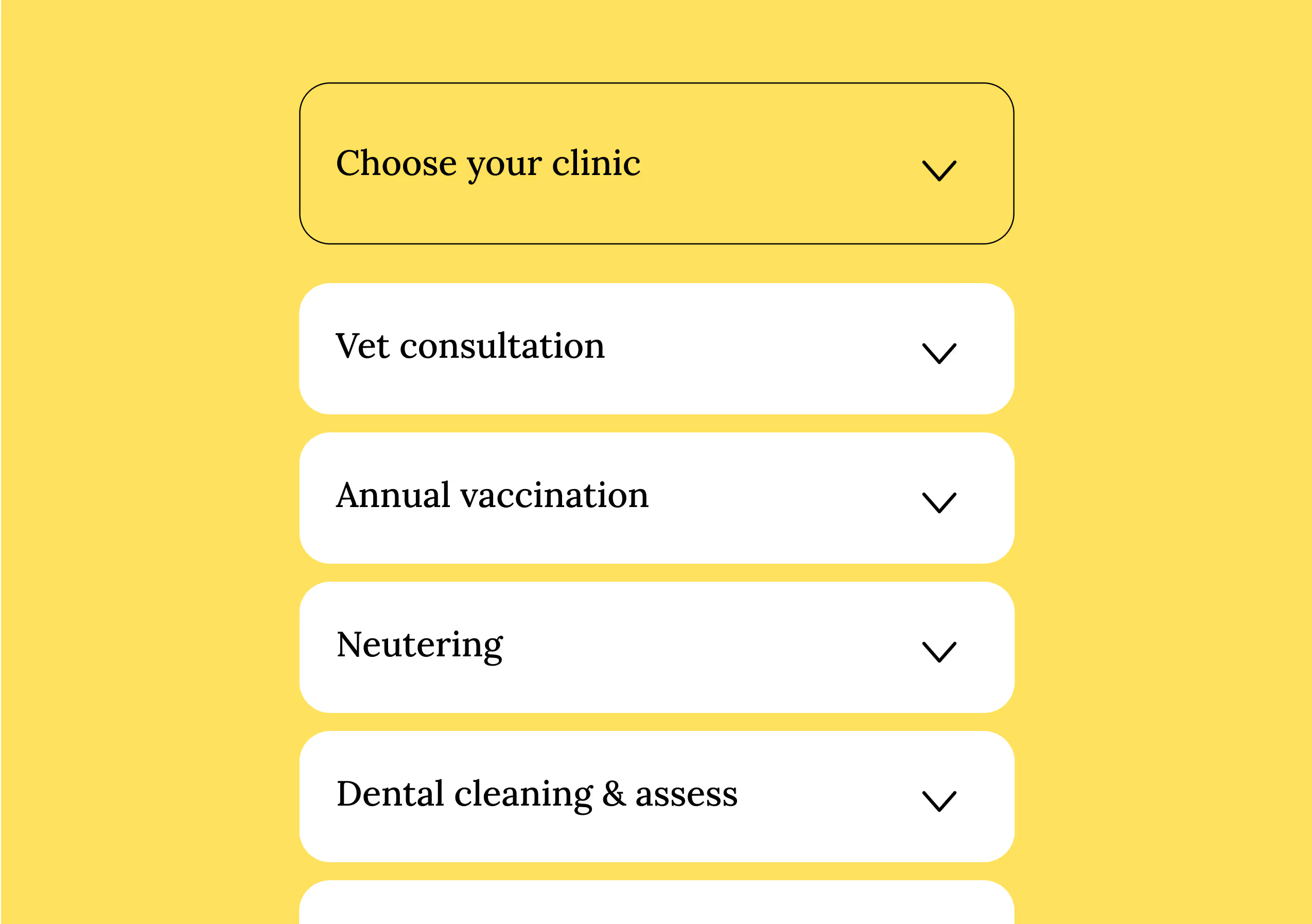
Our prices are public, we share cost estimates upfront and we offer contextualised care, exploring treatment options for every budget.